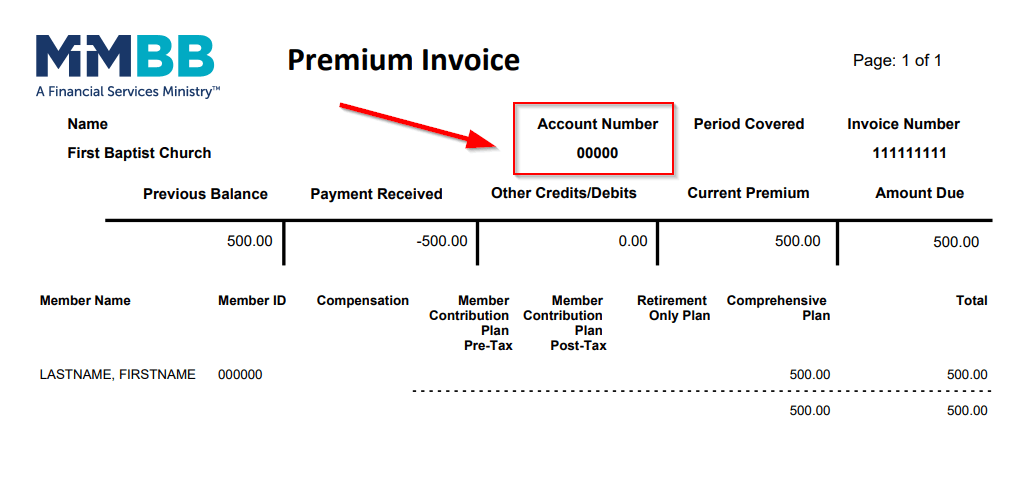Featured Article
While many retired clergy choose to enjoy their well-deserved season of rest, some seek ways to continue nurturing their spiritual calling.

As part of the implementation of this solution our communication methods with members and employers will change with email becoming the preferred method. This evolution means that churches and faith-based organizations need to make every effort to employ the best practices for corporate email management and security.
One of the first rules to follow in creating a corporate or professional email address is to use your own domain. A domain is an organization’s unique name on the Internet. The chosen name combined with a generic top-level domain (gTLD), such as .com or .org, make up the Internet domain name. Even if you do not have a website today, you can obtain a domain name which secures that domain for future use. Establishing a clear corporate or organizational identity is often the primary reason behind obtaining a custom domain however, there are several others to keep in mind. A custom domain email address is easier to remember and will become readily recognizable, and clearly associated with your church or organization. Many organizations use an email address that is tied to their internet service provider (ISP) because it is free, however you must be aware that your business and operations are dependent on the continued use of that internet provider. Should you cancel your service your email address must be changed.
Finding and securing a domain name, if you don’t already have one, is easy and inexpensive. Listed below are the steps you should follow to obtain a custom domain:
Once you have secured your domain name, you can set up email accounts. Creating email accounts using your new domain name allows you to have an address that can remain consistent for years such as [email protected].
When setting up email addresses for your church or organization, the best practice would be to create them according to role or function. For example, [email protected] is better than using the church treasurer’s name ([email protected]). If John should leave the church, it won’t be necessary for you to notify your contacts of the new email address for the next treasurer. With an address that specifies the job function your administrator would simply grant the new treasurer access to [email protected]. You can also set up addresses to go to multiple users. For example, the email address, [email protected] could be automatically delivered to all church deacons. There is also a case for personalizing addresses for key leaders such as the pastor, who may want to have an email address using their own name ([email protected]) given the demands and responsibilities of the position.
Providing email addresses for your staff using your own domain is just the start. Even small churches and organizations should create a corporate email policy to mitigate their organization’s risk. If you need assistance creating a corporate email policy there are many online resources at your disposal, such as www.freechurchforms.com, that provide templates for use in creating your corporate email policy. The corporate email policy formally outlines how employees may use email by setting guidelines for what is considered acceptable and unacceptable use. The corporate email policy should warn and guide employees against email threats such as viruses, spam and phishing attacks. The policy may place limits on what types of files employees can open, download or exchange with others. It should also outline what to do if an employee receives an offensive email, to protect the organization against legal liability.
A corporate email policy may also include language covering personal use of the organization’s email account, such as whether personal emails are acceptable. Detailed guidance regarding prohibited content and the treatment of confidential information should also be included. The policy may also address compliance and email retention. To enforce the guidelines outlined in your corporate email policy, an organization should conduct regular staff training that outlines email best practices. By educating your staff on corporate email and implementing the proper measures to protect your organization you can alleviate some of the risk that may come with corporate email usage.
Email has transformed the way that people communicate in the business world. It is now a commonly preferred method of communication in the workplace as it enhances efficiency by allowing people to quickly send and respond to messages as well as send messages to multiple people at one time. Communicating via email is now standard operating procedure for most everyone, both personally or professionally, so make sure that you and your staff understand the best practices for corporate email management.
Back to Financial Resource CenterThank you for joining the MMBB mailing list. You will begin to receive information soon.
Translations of any materials into languages other than English are intended solely as a convenience to the non-English-reading public. We have attempted to provide an accurate translation of the original material in English, but due to the nuances in translating to a foreign language, slight differences may exist.
Las traducciones de cualquier material a idiomas que no sean el inglés son para la conveniencia de aquellos que no leen inglés. Hemos intentado proporcionar una traducción precisa del material original en inglés, pero debido a las diferencias de la traducción a un idioma extranjero, pueden existir ligeras diferencias.

MMBB Financial Services is pleased to unveil our new website experience.
Watch a guided tutorial of our enhanced site to introduce you to important new features designed to help you live your life with financial confidence.
You will be linking to another website not owned or operated by MMBB. MMBB is not responsible for the availability or content of this website and does not represent either the linked website or you, should you enter into a transaction. The inclusion of any hyperlink does not imply any endorsement, investigation, verification or monitoring by MMBB of any information in any hyperlinked site. We encourage you to review their privacy and security policies which may differ from MMBB.
If you “Proceed”, the link will open in a new window.


 Back to Top
Back to Top